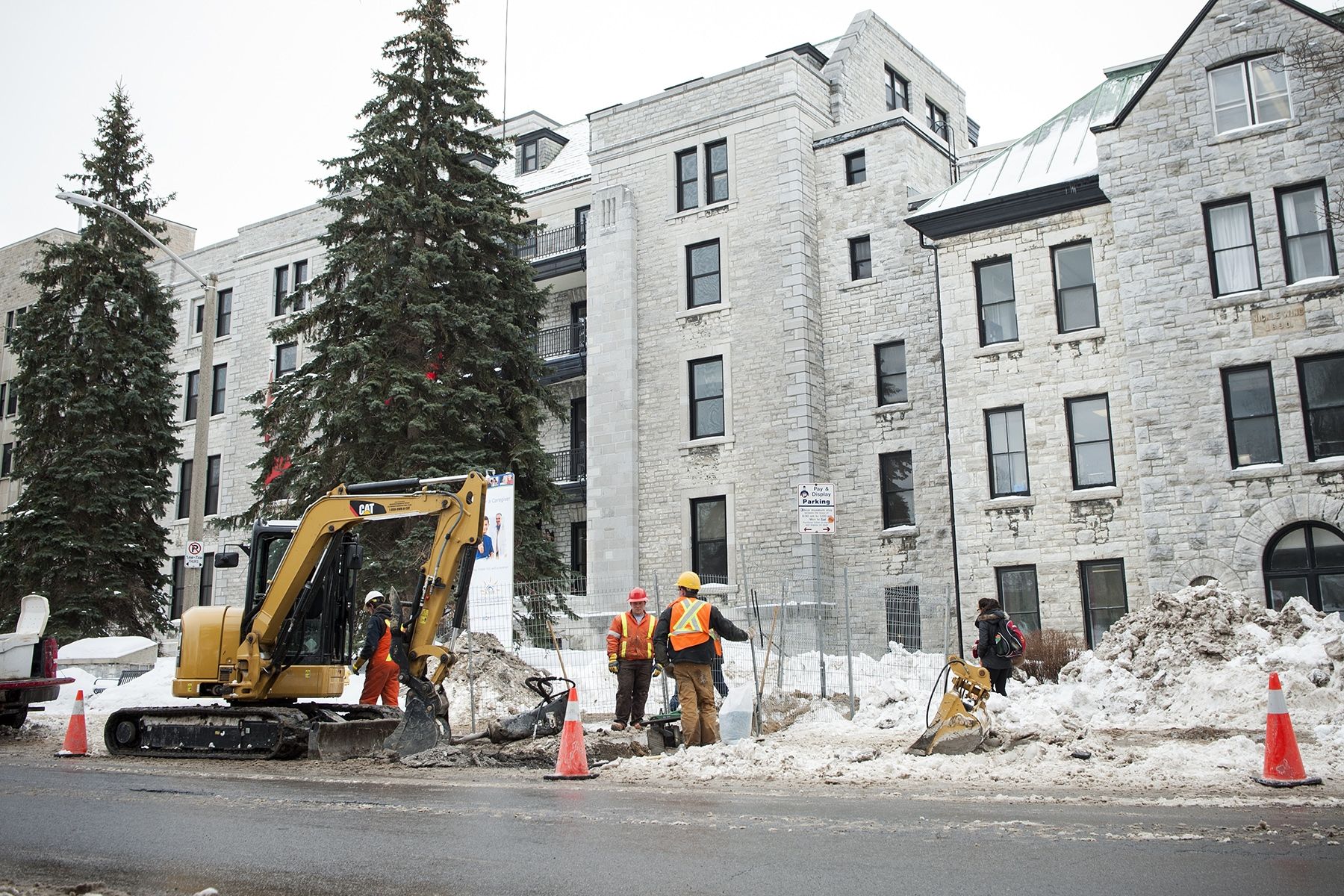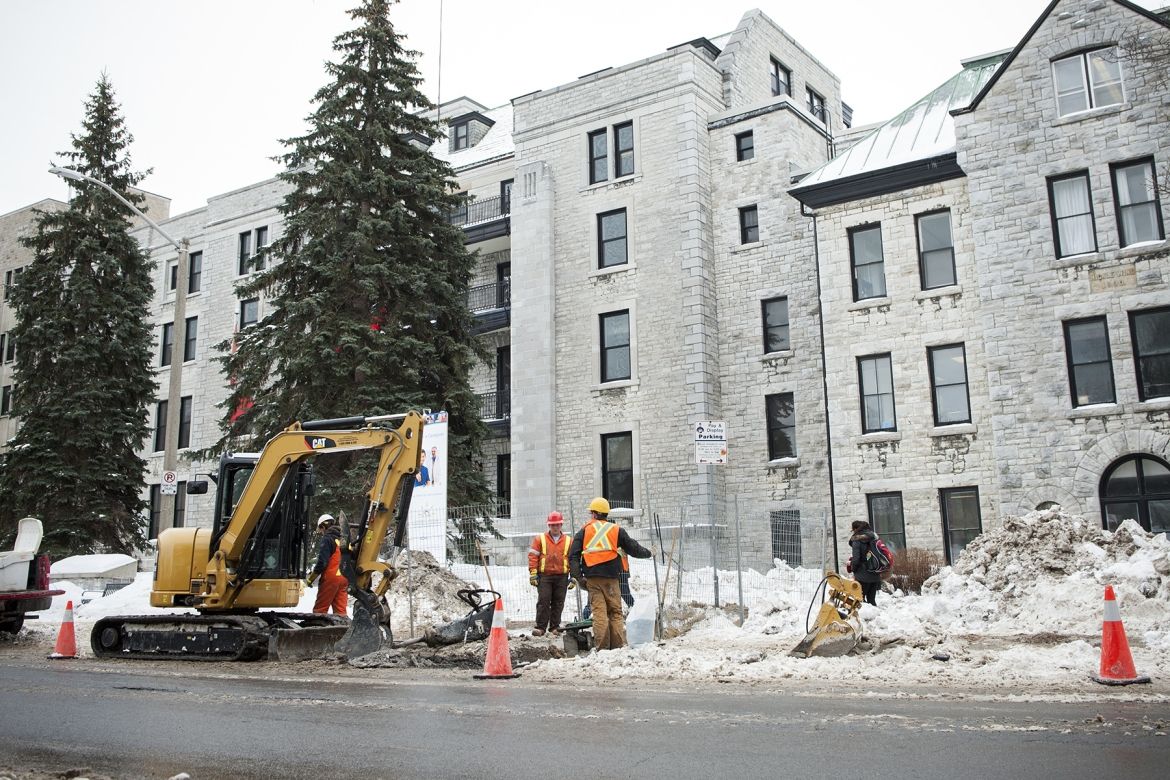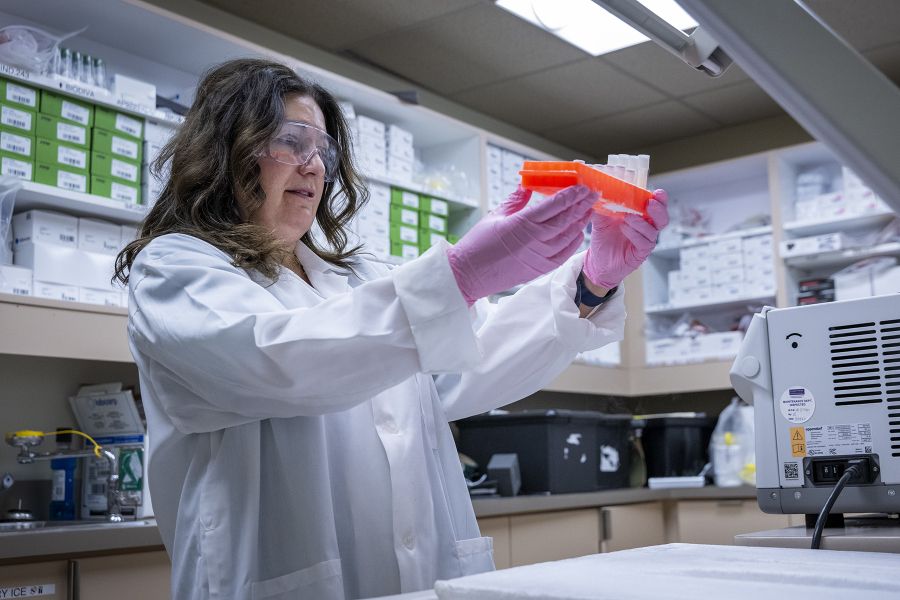Effective immediately masking is required for everyone when present on all inpatient units, in the Emergency Department (ED), the Urgent Care Centre (UCC), and the Children’s Outpatient Centre (COPC).

With all of the snow on the ground, it certainly doesn’t feel like spring is on its way, but Kingston General Hospital along with the City of Kingston and Queen’s University are busy planning for construction season. In May, the City will begin a project to replace all of the water distribution, drainage, and sewage infrastructure under most of the streets around KGH.
The project, to be done in phases, will move along each street like the ‘big dig’ did on Princess Street last spring. Each phase is expected to take about six-to-eight weeks and the project should be complete by December 2014.
A project which includes major excavations like this one will be complex, but KGH is doing its part to make the work as seamless for staff, patients and families as possible.
“We are working to avoid any direct impact on patient care. We are speaking with departments across the hospital to identify any potential issues that the construction will create, then putting plans in place to lessen the impact of construction,” says Rocky Prosser, Director of Protection Services. “We believe there will be only a minor disruption of businesses here at KGH.”
Beginning in May, construction will start at the corner of King Street and George Street and over the spring and summer will move up George to meet Stuart Street and go west along Stuart to University. In August and September, the intersections of Stuart and George and Stuart and Arch will be under construction. Then through the fall season, work on the rest of Stuart, Arch and O’Kill will be completed.
Once the work is finished, it will provide some major benefits for the hospital. The new water distribution, storm, and sewer systems will help prevent future flooding of hospital buildings during large storms or snow melts. It will also provide KGH with brand new infrastructure systems to ‘plug into’ during future phases of development.
The project team has been in regular contact with the City of Kingston to make sure that construction crews will be prepared to address any hospital concerns. As with any large project, services like water or hydro will occasionally need to be shut off in certain areas of the hospital for crews to complete their work. The City will provide notice to KGH at least 48 hours ahead of time so staff can plan ahead.
Prosser notes that the hospital is reviewing its plans for parking, access to entrances and unexpected loss of services such as drinking water or information technology. Backup systems will be in place for areas of the hospital that cannot lose services without having a major impact on patient care.
Gallery


Call it a sign of things to come. A construction crew works on Stuart Street a few months ahead of the infrastructure renewal project set to go this spring.



